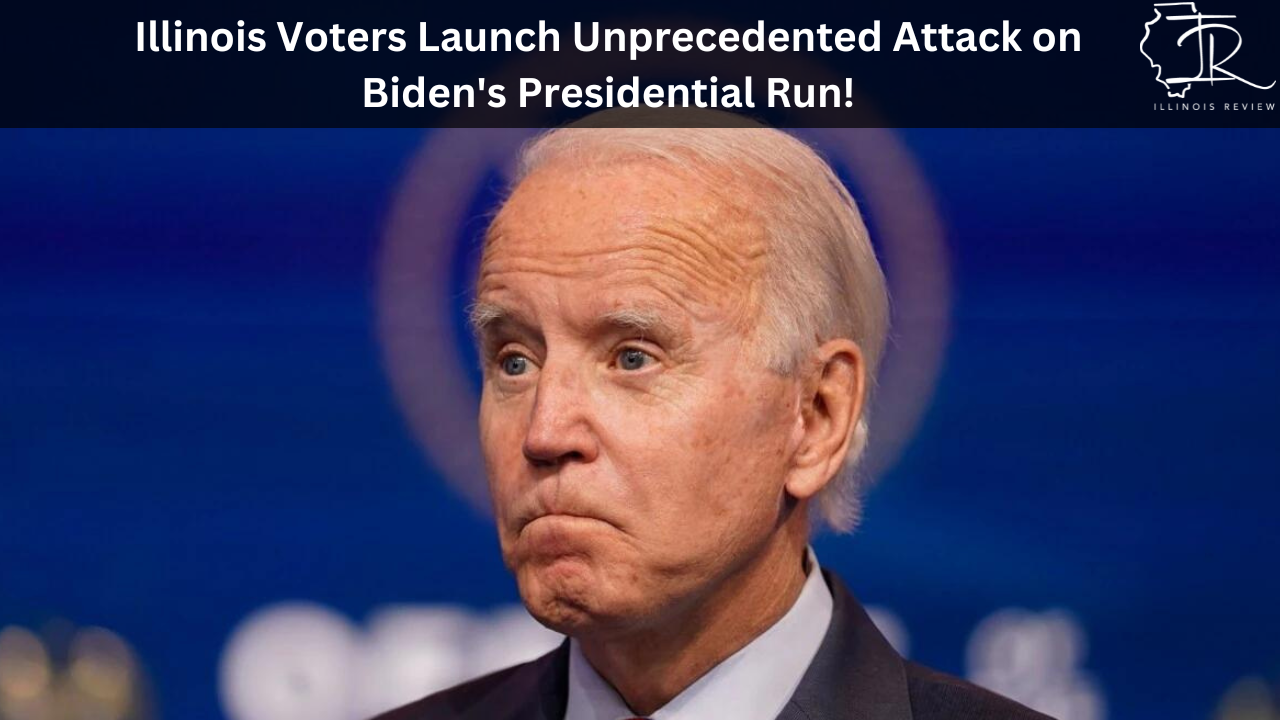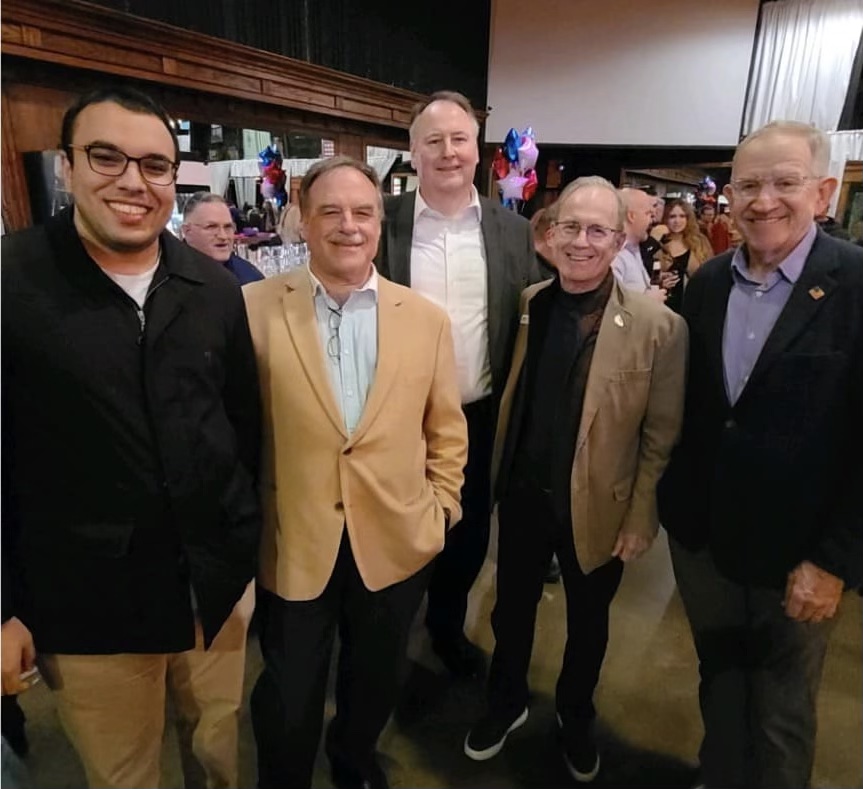In a significant move that may impact the 2024 presidential primary in Illinois, Beth Findley Smith, an Illinois voter and LaSalle County’s District 4 board member, has spearheaded a legal challenge to remove President Joe Biden from the state ballot. This objection, rooted deeply in the adherence to state-specific legal requirements, highlights a meticulous approach to election law and underscores the importance of every detail in the electoral process.
Beth Findley Smith, in an exclusive statement to the Illinois Review, articulated the essence of her challenge:

“In the heartland of democracy, every detail matters. My objection to Joseph R. Biden, Jr.’s candidacy in the Illinois primary election is rooted in a commitment to the integrity of our electoral process. A Statement of Candidacy, a fundamental document in his Nomination Papers, should bear the stamp of our local trust – notarized by a Notary Public commissioned by the State of Illinois. We must ensure that every candidate upholds the standards set by our great state. Let this objection stand as a testament to our unwavering dedication to the principles that safeguard the essence of fair and transparent elections in Illinois.”
The crux of Smith’s objection lies in the notarization of Biden’s statement of candidacy. It was notarized by David E. Kalbaugh, a Notary Public commissioned in the District of Columbia, instead of an Illinois official as mandated by state law. This technicality, Smith and her fellow petitioner Timothy Conrad argue, renders Biden’s statement invalid, potentially disqualifying him from appearing on the Illinois ballot.
This meticulous approach to the legalities of election procedures underscores a broader concern about electoral integrity and the importance of adhering to established legal norms. The objection filed by Smith and Conrad is a testament to the rigorous scrutiny that presidential candidates face, regardless of their political stature.
Second Challenge: Allegations of ‘Aid or Comfort’ to Enemies
Following Smith’s legal challenge, a second, more intricate objection was filed against President Biden’s candidacy. Spearheaded by Terry Newsome, Illinois Chapter President of Parents Involved in Education, along with Shane Bouvet, Peggy Hubbard, and Timothy Conrad, this petition leverages the 14th Amendment in a bold legal strategy.
This group’s filing cites the “aid or comfort” clause of the 14th Amendment, arguing that Biden’s immigration and border policies, specifically the halting of border wall construction and a more lenient enforcement approach, have compromised national security. The petitioners assert that these policies have facilitated enemies of the United States, including transnational criminal organizations and potential terrorist threats, to exploit the nation’s vulnerabilities.
The petition details a list of 64 actions taken by the Biden administration, which, according to the plaintiffs, have undermined border security and encouraged illegal immigration. Among these actions are the illegal diversion of funds allocated for border wall construction, the flouting of court orders declaring DACA illegal, and the implementation of a “catch-and-release” enforcement approach. The filing paints a picture of deliberate policy decisions that, in the petitioners’ view, amount to giving aid or comfort to America’s enemies.
This objection represents a significant escalation in the legal challenges surrounding the 2024 elections. It not only raises questions about the specific actions of the Biden administration but also tests the boundaries of constitutional law, particularly the application of the 14th Amendment in electoral politics.
Broader Context and Implications
These legal challenges in Illinois reflect a growing trend of using constitutional provisions and state-specific legal requirements to contest political candidacies. While historically the 14th Amendment has never been invoked in this manner, the current political climate has seen an increase in such legal maneuvers, reflecting the deeply polarized state of American politics.
The outcomes of these challenges could set precedents for future electoral battles, not just in Illinois but across the nation. They highlight the evolving nature of legal strategies in political contests and the importance of adhering to both the letter and spirit of election laws.
As the Illinois State Elections Board prepares to convene on January 17 to hear these objections, the national political community watches with keen interest. The decisions made in these cases could influence the immediate political landscape and potentially reshape the legal contours of election-related challenges for years to come.
Moreover, these developments underscore the heightened attention to election integrity and the rule of law in the United States. The detailed nature of Smith’s challenge over the notarization of candidacy statements and the broader constitutional questions raised by Newsome, Bouvet, Hubbard, and Conrad’s petition demonstrate the complexity and significance of legal frameworks in American elections.
The cases also bring to the forefront issues of national security, particularly in relation to immigration and border policies. The arguments presented by the petitioners resonate with a segment of the electorate concerned about the potential threats posed by lax border controls and policy decisions perceived as detrimental to national interests. The linkage of these policies to the “aid or comfort” clause of the 14th Amendment introduces a novel legal argument in the realm of electoral politics.
As Illinois becomes a battleground for these legal challenges, the ramifications extend beyond state lines. The cases are being closely watched as indicators of the legal and political strategies that might be employed in future elections across the country. They highlight the increasingly legalistic nature of American political discourse and the willingness of citizens and groups to engage in legal battles to advance their political objectives.
The legal challenges against President Biden’s appearance on the Illinois ballot represent a significant moment in the state’s political history. They reflect the broader national trends of political polarization, the growing importance of legal strategies in political contests, and the ongoing debate over election integrity and national security. The outcomes of these challenges will not only affect the 2024 presidential primary in Illinois but also have implications for the future of electoral politics in the United States.









